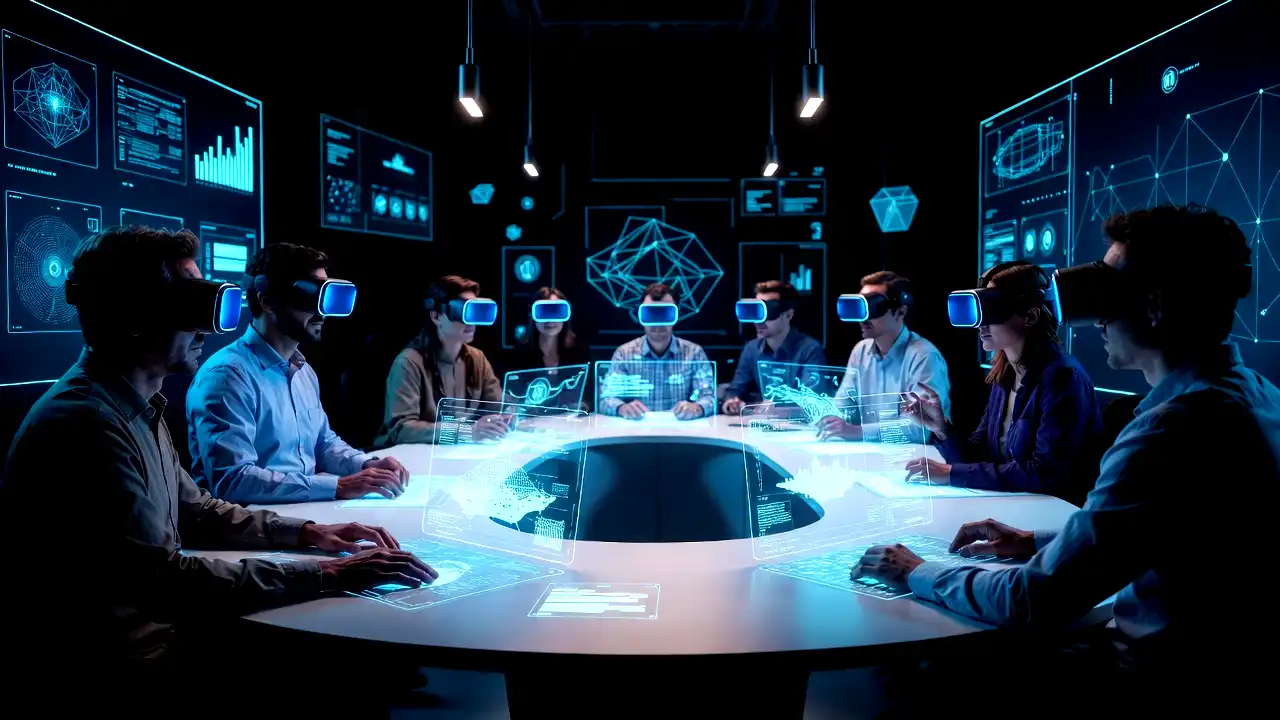Key Points
- Metaverse platforms offer 3D spaces for lifelike interaction. Employees can use tools like interactive whiteboards and shared workspaces.
- Nonverbal cues and gestures are seamlessly translated into the metaverse, improving communication depth and reducing isolation in remote work.
- The technology enables multitasking within a unified digital space. Employees can switch effortlessly between tasks, enhancing efficiency and innovation.
- Data protection in immersive environments requires advanced security measures. Bridging the digital divide is essential for equitable participation.
In a significant leap toward integrating technology and human interaction, companies worldwide are embracing the metaverse to reshape the landscape of remote work. The convergence of virtual and augmented reality and advanced communication tools creates a seamless blend of the physical and digital realms, ushering in a new era of collaboration, productivity, and engagement.
Enterprises are increasingly adopting metaverse-based platforms that offer immersive work environments. Scattered across the globe, employees now interact in lifelike 3D spaces, where digital avatars mirror their real-world counterparts. These virtual offices, equipped with interactive whiteboards, 3D models, and shared workspaces, provide an intuitive and engaging setting for meetings, brainstorming sessions, and collaborative projects. One key advantage of the workplace is its ability to overcome the limitations of traditional video conferencing.
Nonverbal cues and gestures, crucial for effective communication, are effortlessly translated into the virtual world, enhancing the depth of conversations. Moreover, the metaverse fosters a sense of presence and togetherness, eradicating the isolation often associated with remote work.
Productivity gains are also on the horizon, as the metaverse offers unique opportunities for multitasking and seamless information sharing. Imagine toggling between a virtual office, a digital workshop, and a 3D data visualization room—all within the same environment. With information and tools at their fingertips, employees can fluidly switch between tasks, boosting efficiency and creativity.
However, the transition to the metaverse workplace is challenging. Ensuring data security and privacy in these immersive environments demands innovative solutions. Companies must navigate issues of authentication, data encryption, and user consent to protect sensitive information in the digital realm. The digital divide poses a concern, as access to high-speed internet and advanced hardware becomes a prerequisite for participating in the metaverse. Addressing these disparities will be essential to ensure equitable inclusion and participation in the future of work.
As the metaverse evolves, experts predict a gradual shift from the traditional office space to a hybrid model that combines physical and virtual presence. This evolution promises to redefine work and reshape industries, education, entertainment, and social interaction. With pioneers like MetaVerseTech and VirtualWorks Corp. leading the way, the metaverse workplace is poised to revolutionize the very nature of work, offering a glimpse into a future where innovation knows no bounds.





